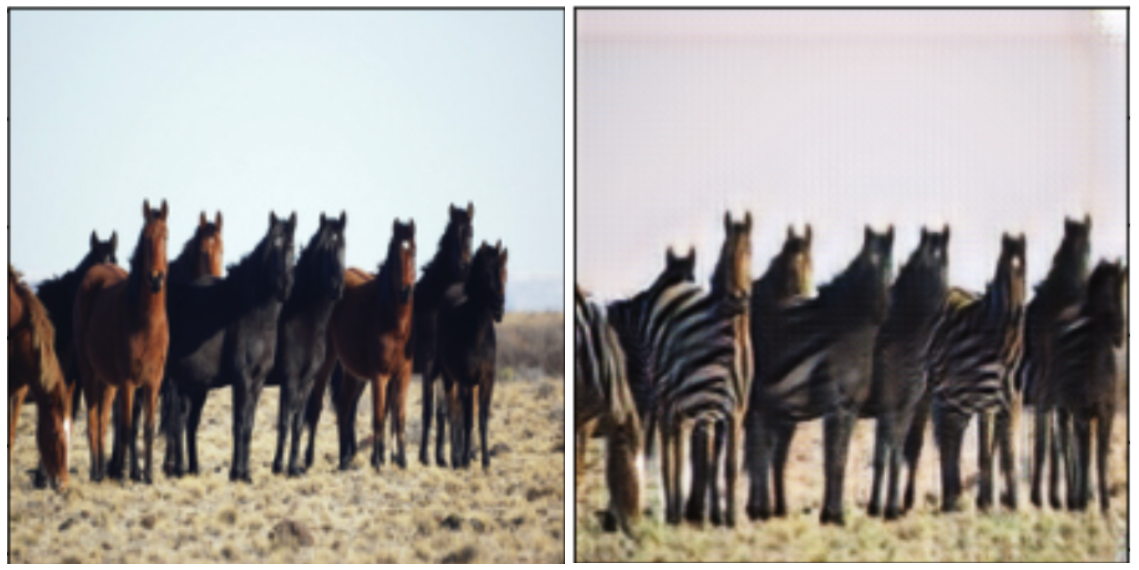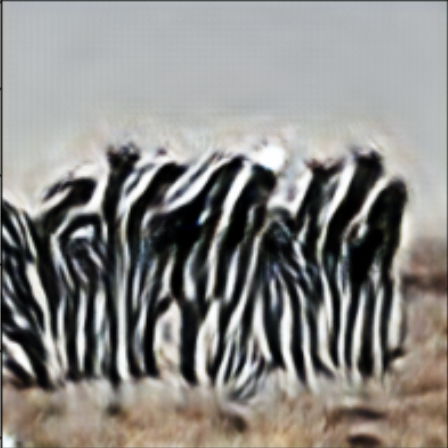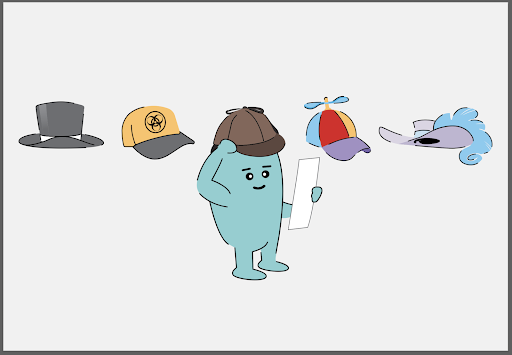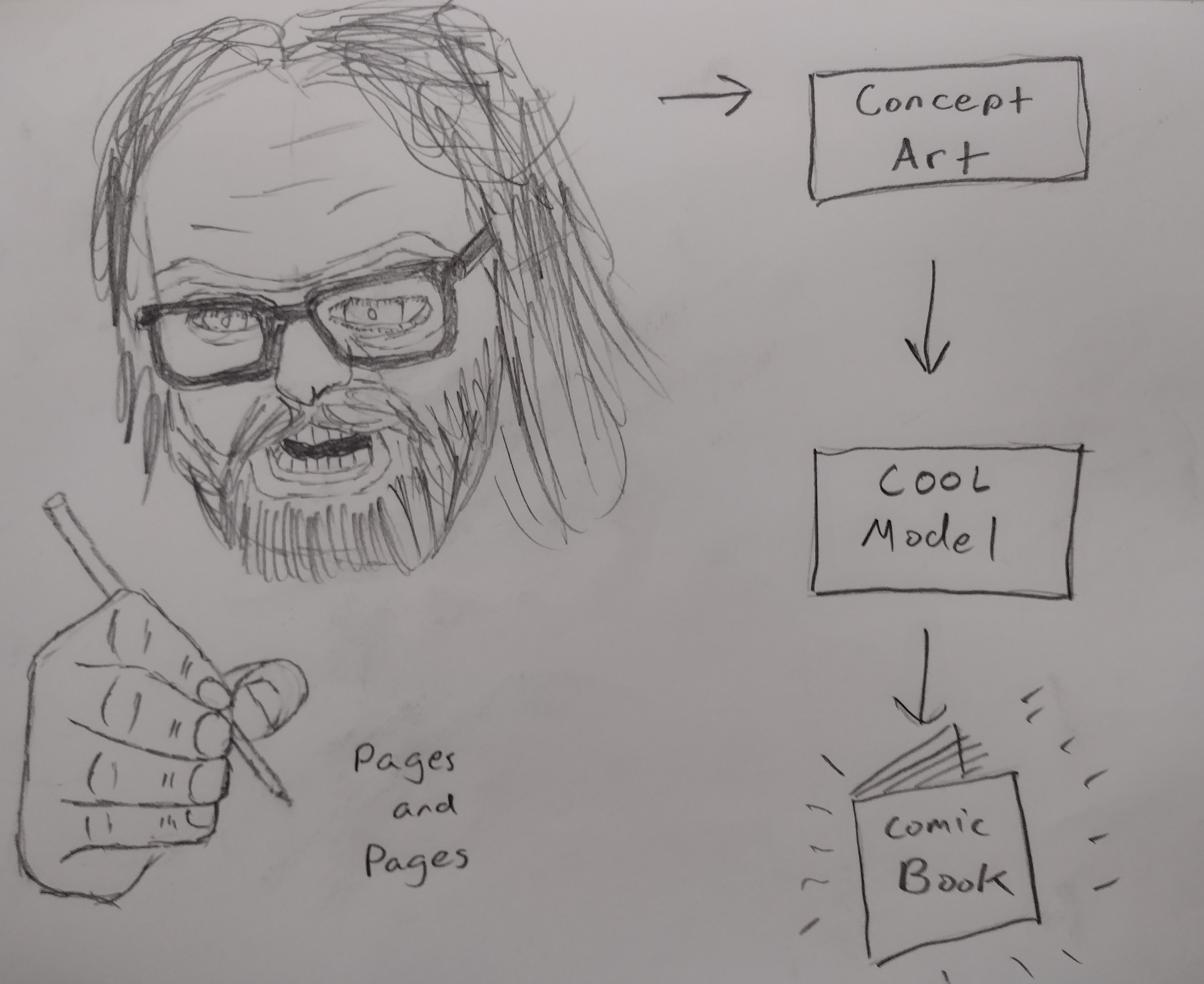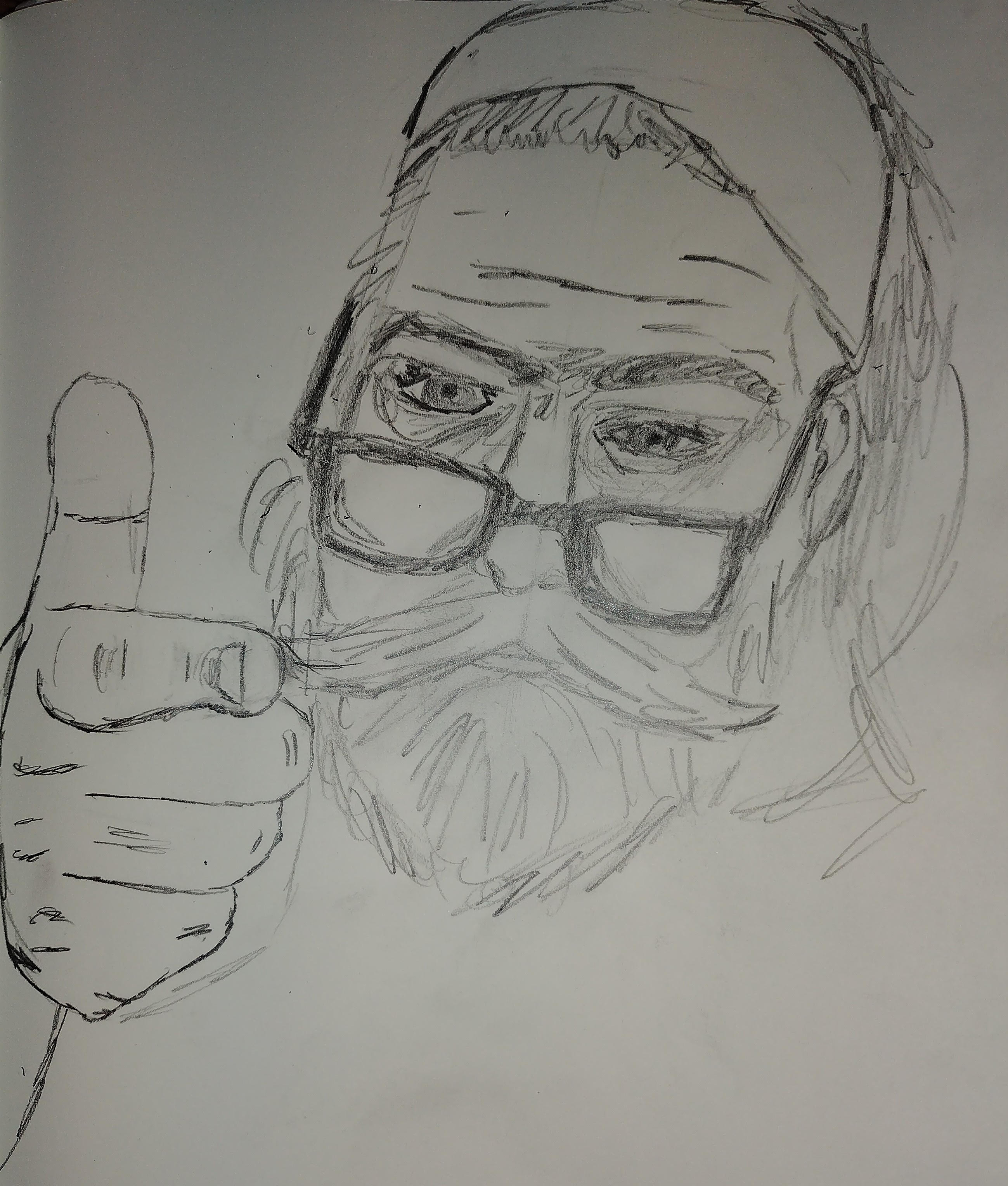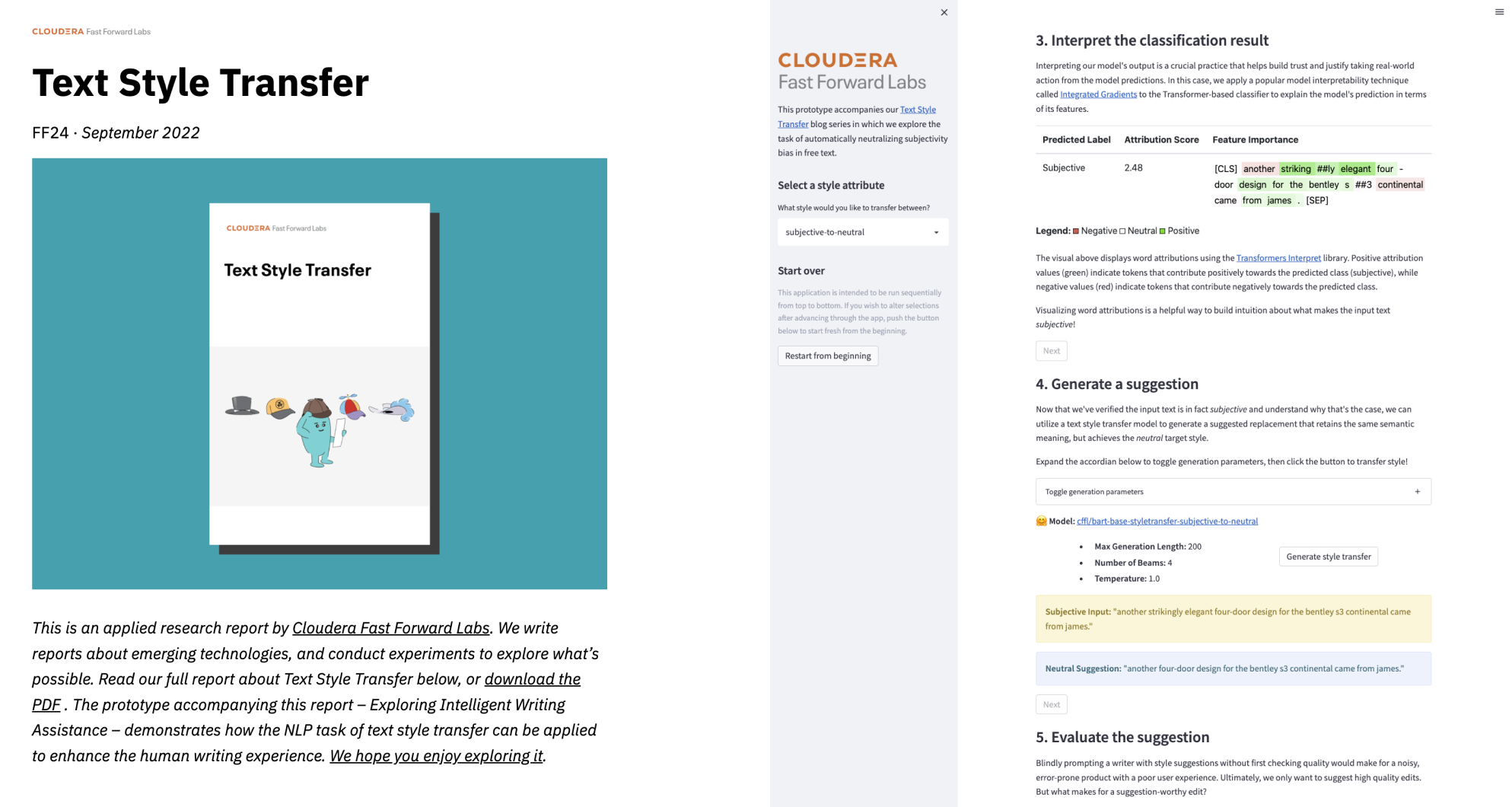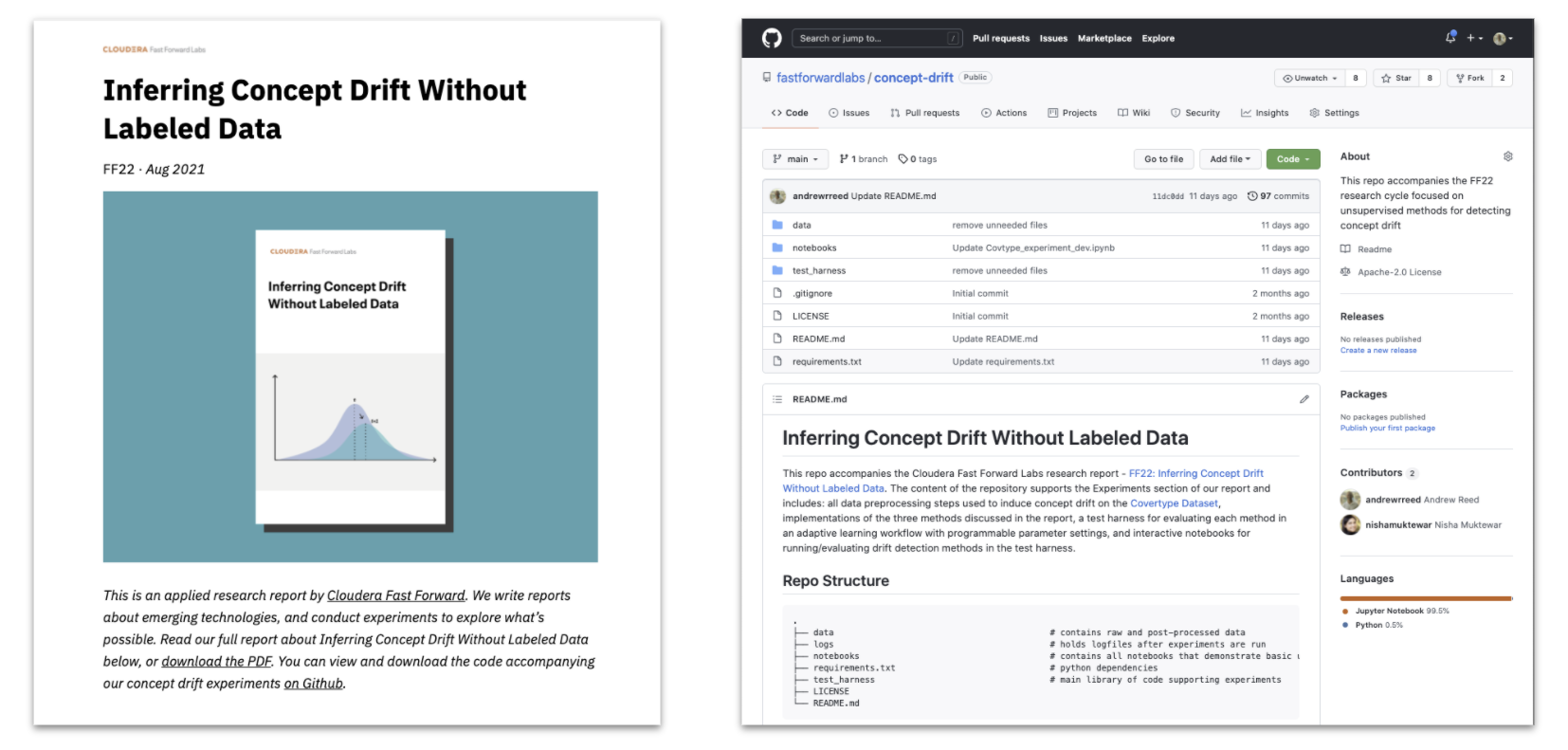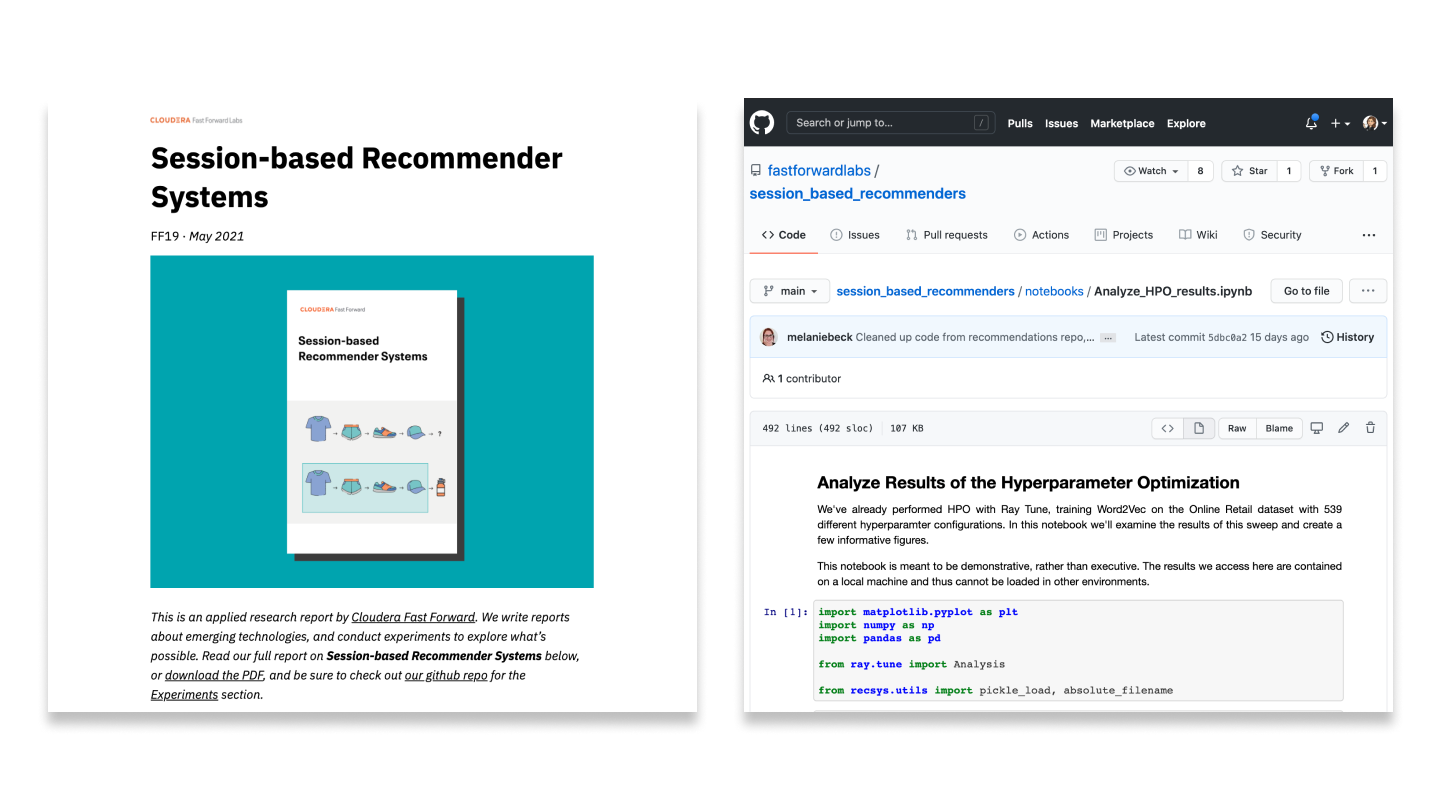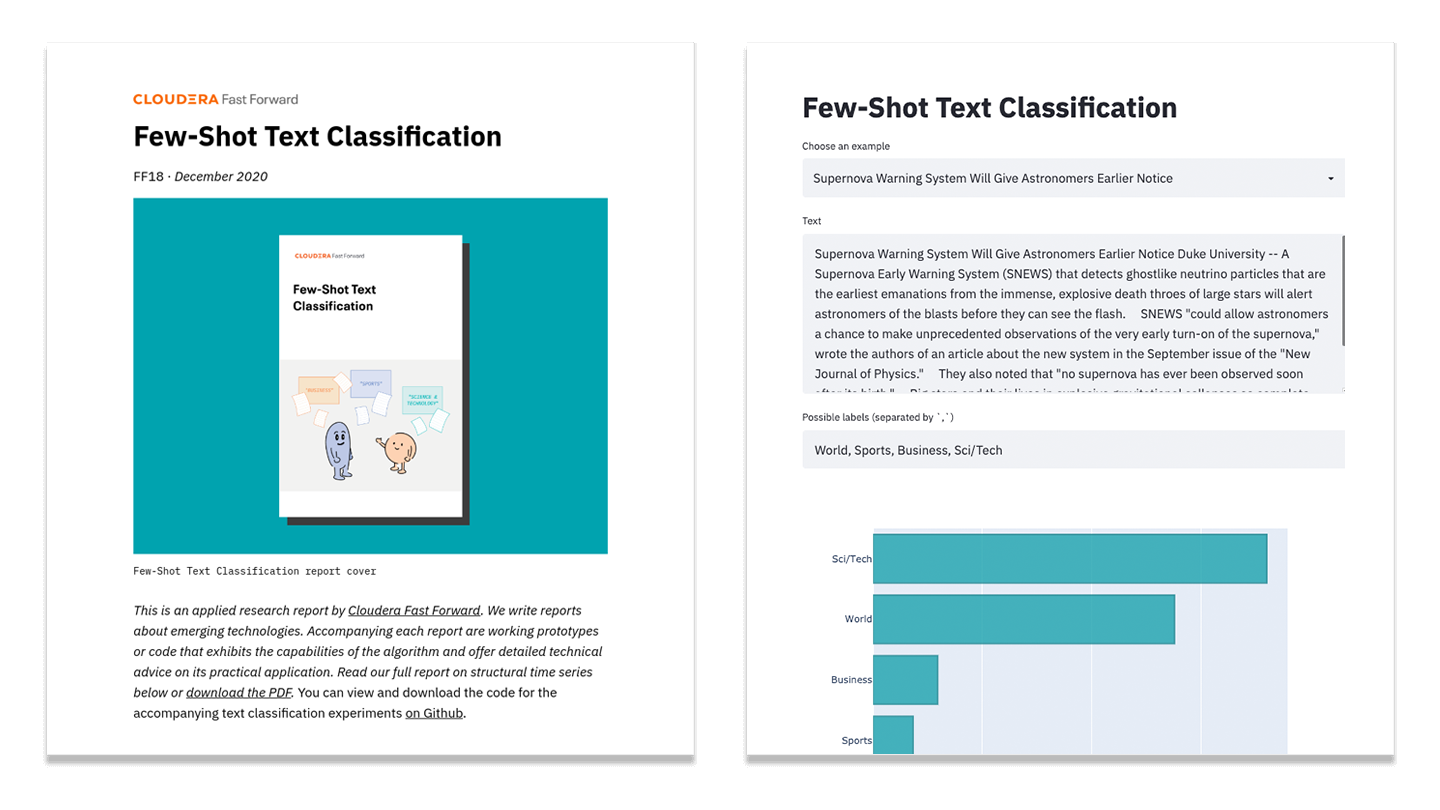Sep 15, 2015 · post
Pictograph: Unlock Your Images
Have you ever wondered what your photos say about how you look at the world and who you are? Your images won’t say much about what types of things you tend to post unless you routinely tag them.
Our new toy application, Pictograph, catalogs the objects that make up your Instagram identity. Pictograph analyzes your Instagram photos and creates a visualization, or pictograph, of what you like to photograph. It’s a fun way to play with new deep learning algorithms for image analysis, and it makes some pretty hilarious mistakes.
Here’s the pictograph for our own Grant Custer:
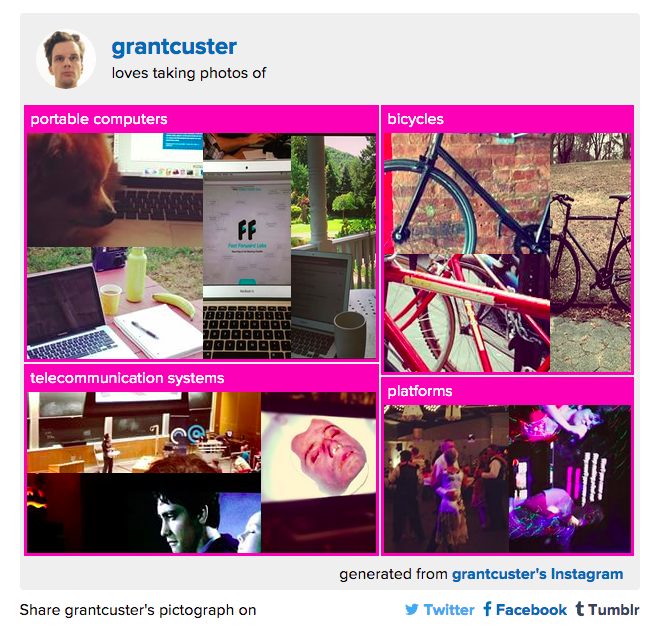
Try it out on your Instagram feed!
We built Pictograph as a toy to help us (and you) understand how deep learning works (and doesn’t work) by applying it in context. Deep learning is an important technology, but we’re still at the beginning of seeing its capabilities. Companies like Google and Facebook are using the technique to recognize cats in videos and categorize content, but we know bigger applications are just around the corner. We expect deep learning will affect several industries in the next couple of years: improving medical diagnoses from X-rays and MRIs, streamlining insurance claims adjustment, predicting market conditions in financial services, and many more.
Given the impact deep learning will have, it’s important to understand how it works and what opportunities it offers. To that end, we are also excited to provide our clients with our Deep Learning for Image Analysis report and advanced prototype. The report and advanced prototype explain the technology in depth, walk through when deep learning is the right option, and demonstrate how to build systems using the technology.
If you’re curious to learn more, join us this Thursday, September 17, at 1:00 ET/10:00 PT for an online discussion between own Hilary Mason and Matt Zeiler, CEO of Clarifai. And stay tuned for more resources throughout the fall!

